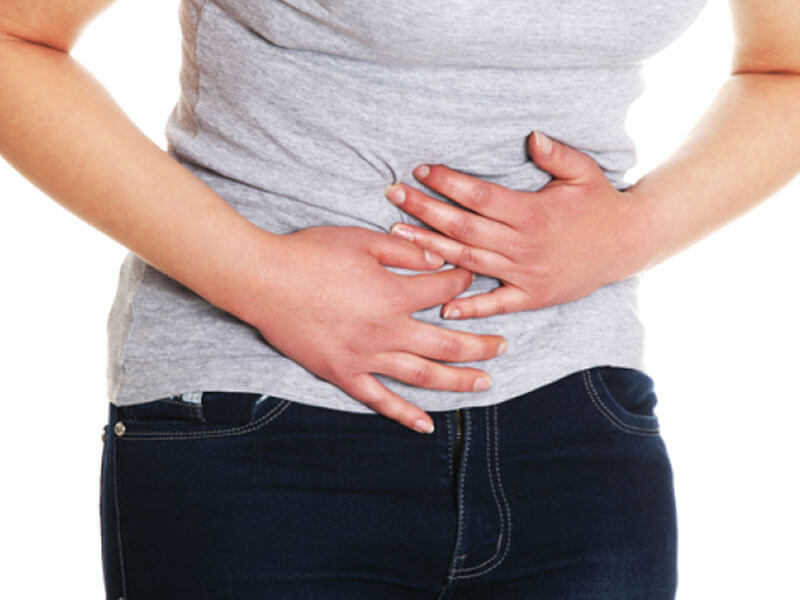
Menstrual Problems
Menstrual problems or disorders are a disruptive physical and/or emotional symptoms just before and during menstruation, including heavy bleeding, missed periods and unmanageable mood swings.
Some women get through their monthly periods easily with few or no concerns. Their periods come like clockwork, starting and stopping at nearly the same time every month, causing little more than a minor inconvenience.
How the Menstrual Cycle Works?
Your menstrual period is part of your menstrual cycle—a series of changes that occur to parts of your body (your ovaries, uterus, vagina and breasts) every 28 days, on average.
Some normal menstrual cycles are a bit longer; some are shorter. The first day of your menstrual period is day one of your menstrual cycle. The average menstrual period lasts about five to seven days. A “normal” menstrual period for you may be different from what’s “normal” for someone else.
Types of Menstrual Disorders:
If one or more of the symptoms you experience before or during your period causes a problem, you may have a menstrual cycle “disorder.” These include:
• Abnormal uterine bleeding (AUB), which may include heavy menstrual bleeding, no menstrual bleeding (amenorrhea) or bleeding between periods (irregular menstrual bleeding)
• Dysmenorrhea (Painful menstrual periods)
• Premenstrual syndrome (PMS)
• Premenstrual dysphonic disorder (PMDD)
Heavy menstrual bleeding
One in five women bleed so heavily during their periods that they have to put their normal lives on hold just to deal with the heavy blood flow.
Bleeding is considered heavy if it interferes with normal activities. Blood loss during a normal menstrual period is about 5 tablespoons, but if you have heavy menstrual bleeding, you may bleed as much as 10 to 25 times that amount each month. You may have to change a tampon or pad every hour, for example, instead of three or four times a day.
Heavy menstrual bleeding can be common at various stages of your life—during your teen years when you first begin to menstruate and in your late 40s or early 50s, as you get closer to menopause.
If you are past menopause and experience any vaginal bleeding, discuss your symptoms with your health care professional right away. Any vaginal bleeding after menopause isn’t normal and should be evaluated immediately by a health care professional.
Heavy menstrual bleeding can be caused by:
• Hormonal imbalances
• Structural abnormalities in the uterus, such as polyps or fibroids
• Medical conditions
Severe Menstrual Cramps (dysmenorrhea)
Some women have experienced menstrual cramps before or during their period at some point in their lives. it’s part of the regular monthly routine. But if your cramps are especially painful and persistent, this is called dysmenorrhea, and you should consult your health care professional.
Pain from menstrual cramps is caused by uterine contractions, triggered by prostaglandins, hormone-like substances that are produced by the uterine lining cells and circulate in your bloodstream. If you have severe menstrual pain, you might also find you have some diarrhea or an occasional feeling of faintness where you suddenly become pale and sweaty. That’s because prostaglandins speed up contractions in your intestines, resulting in diarrhea, and lower your blood pressure by relaxing blood vessels, leading to lightheadedness.
Premenstrual syndrome (PMS)
PMS is a term commonly used to describe a wide variety of physical and psychological symptoms associated with the menstrual cycle. About 30 to 40 percent of women experience symptoms severe enough to disrupt their lifestyles. PMS symptoms are more severe and disruptive than the typical mild premenstrual symptoms that as many as 75 percent of all women experience.
There are more than 150 documented symptoms of PMS, the most common of which is depression. Symptoms typically develop about five to seven days before your period and disappear once your period begins or soon after.
Symptoms associated with PMS include:
• Bloating
• Swollen, painful breasts
• Fatigue
• Constipation
• Headaches
• Clumsiness
• Anxiety or confusion
• Mood swings and tension
• Inability to concentrate
